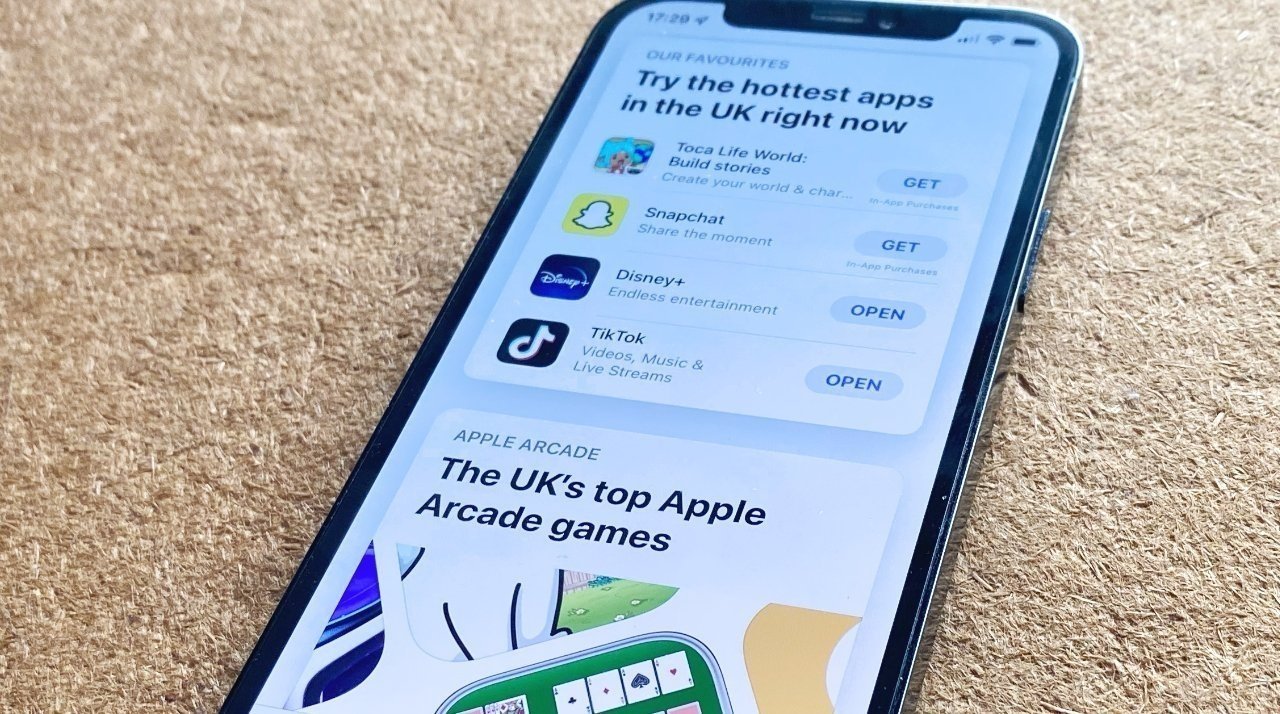Schiller fails to convince skeptical judge over Apple's App Store fees
Judge Yvonne Gonzalez-Rogers remains unconvinced of Apple's rationale for claiming it is complying with her original order, following testimony from Apple Fellow Phil Schiller.

Epic continues to belittle Apple's app store practices while mirroring them in its own store
As part of the ongoing complaint from Epic Games questioning Apple's compliance with the judge's original orders, Schiller and another executive tried to explain how the company arrived at its recent 27 percent commission fee change.
They also refuted the judge's assertion that there is "no data" that the effective commission rate for developers is, on average, lower. Apple has a number of exceptions, including ongoing subscriptions and no commission at all for free apps, that result in an overall lower fee burden.
Phil Schiller testifies
Schiller defended the fees by saying the change is a good-faith attempt to comply with the order, Bloomberg reported. He reminded the judge that the original order established that Apple had a right to charge a fee, even when developers opted-out of Apple's own in-app payment system.
Schiller was one of the three executives, including CEO Tim Cook and CFO Luca Maestri, who settled on the 27 percent fee for developers opting to use other payment processors. The change was down slightly from the original 30 percent fee.
Schiller also said that he wasn't personally opposed to the outbound link requirement. His view contradicts Apple's previous defense that outbound linking would "detract from the user experience."
He noted that "the world has changed, and linking out is being required" in the EU and other regions. "I do not have a preference against link-out. I want to make the solution safe for our customers, that is what I'm focused on," he told the court.
App Store exec admits outside analysts weighed in
Following Schiller's first day of testimony, App Store Senior Director of Business Management Carson Oliver saw the judge becoming more skeptical of Apple's fee rate. Oliver admitted under questioning that Apple did hire an outside firm, Analysis Group, to recommend a new fee baseline.
Gonzalez-Rogers pointed out that Analysis Group found that the lowest acceptable rate would be just 12.3 percent. "And yet you are charging 27 percent," the judge noted. "How do you justify the other 15 percent you are charging?" she added.
Oliver said that part of the justification comes from the additional services Apple provides. He said this includes discovery of apps, distribution, developer tools, and platform technology -- along with additional privacy and data security measures -- that aren't comparable to other online app markets.
He added that Apple's own lowest possible average would actually be around 17 percent. Apple's overall average taking into account all developers -- including the ones who pay nothing -- is lower than 27 percent, he testified.

App Stores in many countries are feeling the effects of recent US and EU court rulings
Oliver also told the judge that the Analysis Group looked at other app and digital service marketplaces to help them determine a range. This included developer storefronts from Microsoft, Alphabet's Google, Etsy, and Shopify among others. The average value of fees charged at other merchants varied wildly, from 12.3 percent to a high as 92 percent, depending on various factors.
The judge did not seem to accept that an overall lower average commission across all developers was a valid basis for charging 27 percent for initial in-app purchases. She said that the executive group's claim of a lower effective rate is "a big assumption" and not supported by data, a charge Carson replied was "not true."
Schiller will be called back to the stand to resume his testimony in the case when the hearing resumes, on May 22.
Read on AppleInsider

Comments
I seriously doubt that she can specify what she thinks is a fair fee. If she can then perhaps she should tell UPS, FedEx and USPS what she thinks is a fair cost for shipping /s
Activist Judge: "How can you justify making more profits than companies barely scraping by?"
Apple: "We seek to be here 10-20 years from now and therefore seek the profits necessary to achieve that."
Activist Judge: "I personally think you should make only profit necessary to barely remain in business, and I honestly don't care what your investors think."
And I may be mistaken on this but didn't she go as far as to say if the case had been brought to court in a different manner, her ruling may have changed?
And an open question: was it limited to law in California?
Epic said they wanted to make their own app store. Well go ahead. It's up to Epic, not Apple, to create a competitive app store and/or attract other developers.
What they ACTUALLY wanted was to live rent-free in Apple's App Store, for Apple to do their advertising and promoting for them, and to pay Apple diddly-squat for access to their platform, secure payment technology, App Store, whatever info they scrape from their Apple customers -- free!
Second, I'm not sure why you're embarrassed on my account when you merely have chosen to disagree. And the basis of your disagreement assumes the judge makes all the right decisions as per your citing of her having "ruled in Apple's favor on all but one count." Your statement seeks to have us all believe that we should naturally assume that remaining count she takes issue with must truly be an issue only because she ruled in Apple's favor on all but one count. "She largely ruled in Apple's favor, so let's cut her some slack on the remaining issue" — would be my interpretation of what you wrote.
But I disagreed with that one count in my earlier post for reasons I've already stated. You simply read what I wrote, disagreed, and here we are. So there's no reason to get embarrassed about anything. You and I simply disagree, and that's okay. If everyone thought the same on this planet, what a boring and unproductive place it would be!
I didn’t say the 30% was high. I said the Judge called it high in her ruling. She also said it was within reason.
I’m not disagreeing with you. I’m saying that you are uninformed. Why am I saying that? Because you are demonstrably uniformed. In your initial post you attributed opinions to the judge that weren’t options that she expressed. In fact her ruling contained opinions that were exact opposite of what you stated you were.
Finally, neither your original comment nor your follow up address the one count that the judge ruled against Apple on. The count was on anti-steering not the 30% cut. Your comment didn’t address the subject whatsoever. I’m inclined to think this is you being uninformed about the ruling and the hearing on Apple’s compliance but to be fair this could also be you being intentionally dishonest.
fictional narrative to impugn the judge and say that she is an activist acting outside of the law. Further you are doing this with no basis in reality. You had to literally make up a story to get to that point.
I apologize my initial comment was clear. I didn’t mean to imply that judge Gonzalez Rogers ruled that Apple has no monopolies whatsoever, just hat she said there was no monopoly in the case brought to her. She didn’t rule on anything beyond the scope of the case in front of her. The better way for me to have said it would have been to say that judge said that Epic failed to prove Apple had a monopoly. Instead I said she ruled that Apple didn’t have a monopoly much in the way that people will say someone was showed to be innocent when the courts have only said that they haven’t been found guilty. It’s an important distinction, thanks for calling it out.
I don’t recall her saying that if the case had been brought before her differently that her ruling would have changed. It’s not a surprising sentiment though. Judges are limited to how a case is presented to them and if a party bungles their presentation or makes poor decisions then it will impact the outcome of the case. So maybe there was something glaring that she sat there wondering why Epic wasn’t going after it.
I have no answer on your open question and have been perplexed by that one as well. As I understand it the law that was violated was California State Law. So I thought it was odd that federal judge would weigh in on state law and then make the order apply federally. But given that no appeals court took up the case I am assuming this is somewhat normal and just a giant blind spot when it comes to the judiciary. But good question.